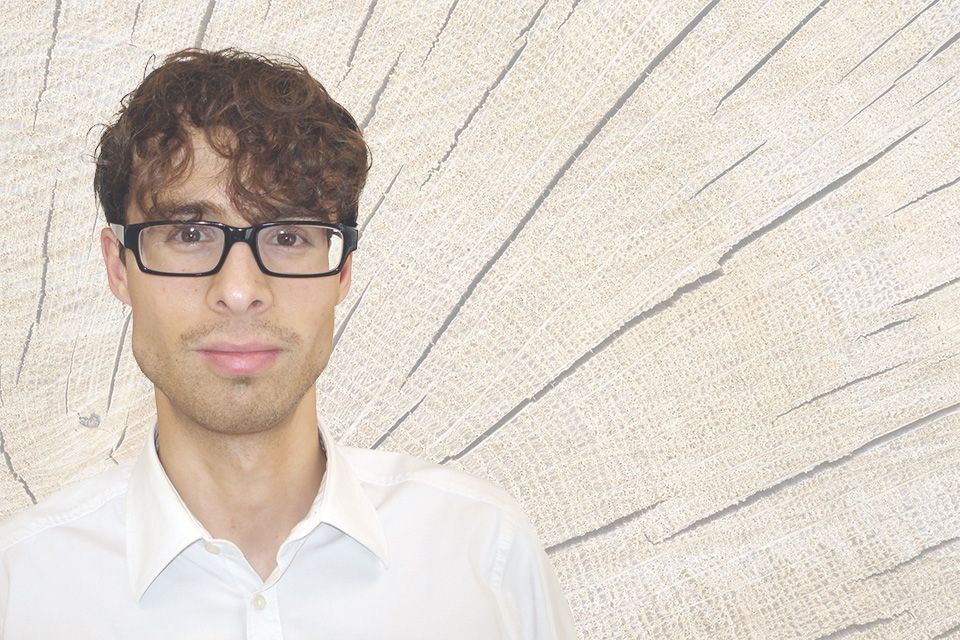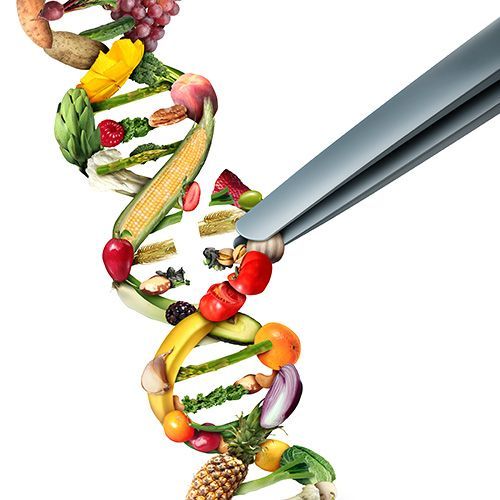Conferences
Medical doctor and speaker Kris Verburgh: 'Nature can reverse aging'

Kris Verburgh, 39, is a medical doctor and researcher, most famous for his bestselling book The Food Hourglass. But what many people might not know is that Verburgh has been an author and speaker since the age of 17. Besides his interest in cosmology, evolution and neuroscience, his focus today is mainly on combatting ageing.
Where does your fascination with ageing come from?
“Since I was young, I’ve been deeply interested in science and philosophy. And I think one of the biggest philosophical questions you can ask is, ‘Why do we have to die? Why does death exist?’”
You could say that dying is just part of nature
“There are organisms in nature that have far longer lifespans than humans. There are turtles and whales that can live for at least 200 years and Greenland sharks that can live for 400 years. Some organisms even seem to be immortal. There are polyps that can continue to regenerate, similar to, oddly enough, babies.”
Babies?
“At birth, babies are zero years old and not as old as the mother, who is 30, for example. That’s odd when you think about it. Her 30-year-old ovum is reprogrammed to zero years when it is fertilised by a sperm from a 30-year-old father. This shows that nature can reverse ageing, including in humans.”
How can we do that once we’re born?
“For the first time in human history, we have access to technology that can treat the cause of all kinds of diseases, not only symptoms. For example, using gene therapy, epigenetic treatments, and transcriptomic therapy. For the first time, we’re able to cure diseases that used to be a hundred percent fatal.
Actually, it’s the long-term aging process that causes cardiovascular disease, Alzheimer’s, Parkinson’s, cancer, osteoporosis, macular degeneration, and the like. Keeping people healthy for as long as possible and fighting and preventing diseases can be done by slowing down the aging process.
A disease like cancer is not just something insurmountable. Nature can regulate the risk of it very well. Mice get cancer after two years of life, while whales only develop it after 200 years.”
But in both cases, it seems to happen at the end of life
“Yes, that’s right, because at the end of life, everything goes wrong due to ageing. You’re always getting older as an organism. And then, as you say, cancer develops. Alzheimer’s risk also rises enormously, as does the risk of cardiovascular disease. Of course, there are also children who get cancer. However, the older we get, the greater the risk of all these diseases starts to increase. If you can slow down the rate of ageing, you will also postpone these diseases for much longer. And then you’ll live both longer and healthier.”
Some scientists think that humans can eventually live even 500 years, as you said in a TED talk
“Yes, there are scientists who predict that. I’m not going to make any claims about exactly how old we can get, but I do know that life expectancy increases by 2.5 years every 10 years. So, for every four days you get older, you get one extra day.
At this moment in time, we think that the biological plateau of the maximum age is about 120 years. But if you look at technologies that can reverse ageing, you might be able to push through that biological plateau and let people live much longer.”
Do people want that?
“Many people say they don’t want to, because they think that they’ll be in a wheelchair after 90. However, the goal of combatting and reversing ageing is not just to get older, it’s to stay young and healthy for longer.”
This all sounds wonderful, but don’t you think that having everyone live such long lives has ethical drawbacks as well?
“Yes, there certainly are. A drawback we hear often is overpopulation, but that doesn’t really seem to be a long-term problem. In fact, if you look ahead further than a century, we’re heading for massive underpopulation.
Critics also wonder, when it is still medicine and when does it become human enhancement? With new gene technology such as CRISPR, you can edit genes quickly and easily. What if you switch off a receptor in the cells so that people can no longer get HIV? Or change one gene so that people have an 80 percent lower risk of heart attacks? Is that still medicine, or is it giving people an upgrade? These are questions we’ll have to ask ourselves in the future.
But I also ask the question the other way around: how unethical would it be to not address ageing, given that it’s the biggest driving factor for life-threatening diseases? How unethical would it be to let people suffer heart attacks, so they can live another five years with heart failure, and then die?
Given that cardiovascular disease is the leading cause of death in the West, I often start my lectures by asking, ‘What if I waved a magic wand and no one ever got another heart attack? How much longer do you think people would live on average?’ And then they often start thinking about big numbers. But the answer is disappointing, because if we could cure all cardiovascular diseases, people would only live 2.5 years longer.’”
If we could cure all cardiovascular diseases, people would only live 2.5 years longer
Why such a short time?
“If people don’t die of a heart attack, they will die relatively quickly of another ageing disease, such as Alzheimer’s, cancer, or pneumonia caused by old lungs. It’s so unfortunate that governments spend billions of euros on just curing all those individual diseases. Since people would then die from other ageing diseases, it barely provides a solution.
That’s one of the reasons why healthcare needs a drastic transformation. Healthcare now only acts when it’s too late. I believe that the solution lies in much more preventive healthcare - proactive and much more personalised, because everyone is different.
So, the top GPs of the future? They’ll be concerned with nutrition, exercise, supplements and other preventions in a scientific way, not just with operations and medication that mainly treat symptoms. I also believe that patients will insist that doctors become knowledgeable on nutrition and prevention, because they will not tolerate their GP being ignorant on these matters.”
Supplements are quite controversial, at least in the Netherlands. Many GPs say they’re nonsense. What do you think about that?
“That’s a fascinating and complex story. There are people who consider supplements to be expensive urine and others who say that you can treat all kinds of diseases with magnesium. Both these statements are an oversimplification. It’s much more nuanced.
Of course, nutrition remains crucial. But even if you’re following a healthy diet, it’s very difficult to get all the micronutrients you need. Therefore, I think supplements in the right form and dose can be helpful, but doing it correctly is very difficult.”
Have you ever noticed resistance instead of enthusiasm when you talk about combatting ageing?
“Well, mostly enthusiasm. I think everyone wants to be young and healthy for longer. I just think that some people fear that it’s all going too fast.”
Do you believe it’s important to talk about it at conferences?
“Yes, it’s a big deal. Since our field’s expertise is constantly evolving, it’s critical to stay educated and share knowledge at conferences. I like discussing, but I also very much enjoy meeting like-minded people.”
Do you learn things from other speakers?
“Yes, I’m always very curious and willing to learn. I strongly believe in the principle ‘being the dumbest person in the room is the smartest thing you can do’. At conferences, I often get to speak with a professor who has developed or discovered something new. It’s always a great honour to talk to someone like that, hearing about those decades of experience. That’s usually the only way to be able to speak to and listen to such authorities in a specific field.”
I think knowledge sharing is one of the driving forces for our species
So, you strongly believe in the value of knowledge sharing?
“Absolutely. That’s the neat thing about human beings: that we can learn from each other. I think that’s one of the driving forces for our species. We’re always building on the knowledge of others. And that has enabled us to eventually build MRI scanners and particle accelerators and send rockets into space.”
“Now, this framework is being disrupted by AI. For the first time in history, knowledge no longer arises through consciousness. This is a unique moment. Not only because we’re competing with AI, but also because we have biotechnology that can change our genetic constitution and reprogram our genetic hardware. Some philosophers believe that in the future, we’ll be able to distinguish between different human species because some people will be able to modify themselves more or less genetically.”

Are you hopeful for all those changes?
“Overall, I’m hopeful that we can use those technologies to do good. There are existential risks that we will have to face, as you could also commit bioterrorism with those technologies. Or use AI to create terrible things. Generally, I think that those technologies, used wisely, will still bring about major changes.
“Personally, I also want to live and stay healthy for as long as possible and enjoy every moment of it. I’m almost 40 now, but I feel better today than when I was 20. I want to pass that on to others.”
What’s the key message that you want your audience to leave with?
“If they only take away one thing from my story, I hope it’s this: adopt a healthy lifestyle and try to stay alive as long as possible, so that you can eventually benefit from the biotechnology that will see the light of day in the coming decades.”
Is it very difficult for you to compress your whole story into such a short and concise speech?
“The more time I have for a lecture, the more fun it is. I always tell organisers that. But I have also given an eight-minute lecture once. And I think one of the reasons why my lectures are always well received, is that it’s a lot of knowledge in a short time. Some speakers can take a long time to explain obvious things. For me, it’s the opposite. I very much enjoy surprising and overwhelming my audience with new insights that provide food for thought. So, during my lecture you receive many educational insights in a short time.”
Deel dit bericht
Reacties
Er zijn nog geen reacties.
Plaats een reactie
Je moet ingelogd zijn om een reactie te plaatsen.
